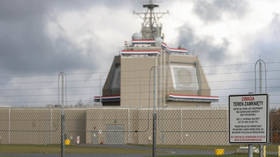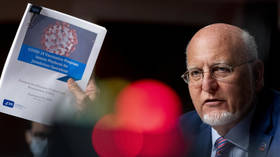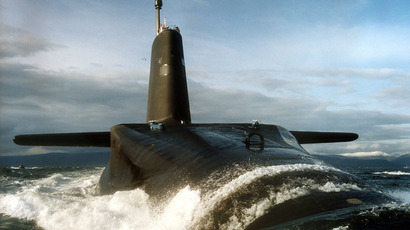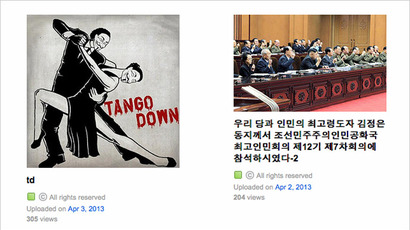Embassies remain in N. Korea after warnings to evacuate
Foreign embassies seem to have no immediate intentions to withdraw their staff from Pyongyang, despite the North Korean government warning they could not guarantee safety and suggesting they evacuate.
Currently, about two dozen countries have embassies in North
Korea. Most of the represented governments have already made it
clear they had no immediate plans to withdraw personnel; some
suggested the advisory was just a ruse to fuel growing global
anxiety over the current crisis on the Korean Peninsula.
“We believe they have taken this step as part of their
country's rhetoric that the US poses a threat to them,” a
British Foreign Office spokeswoman said.
North Korea's proposal of evacuations was sent to all foreign
embassies on Friday. It has left an uneasy feeling in the
air.
“We are very worried by inciting of tensions, even though it's verbal so far,” Russian Foreign Minister Sergey Lavrov said. “We would like to understand the reasons behind the proposal to evacuate the embassies, whether it's a decision of the North Korean leadership or a proposal. We were told it's a proposal.”
So far no embassy has announced moving its staff.
“The security of the German embassy and its exposure to danger are continually being evaluated,” the German Foreign Ministry said in a statement. “For now, the embassy can continue working.”
‘No particular developments in Pyongyang or other cities’
South Korea's presidential office said Saturday it had detected
no noticeable developments in its review of the latest situation in
the North.
“It was determined at the meeting that for now, there are no particular signs of changes or developments in Pyongyang or in any other cities,” a South Korean official was quoted by Yonhap news agency.
Western tourists returning from Pyongyang confirm the situation on the ground is calm, with life going on as normal.
“We didn't feel frightened when we were there,” said Tina Krabbe, from Denmark, arriving in Beijing after five days in North Korea.
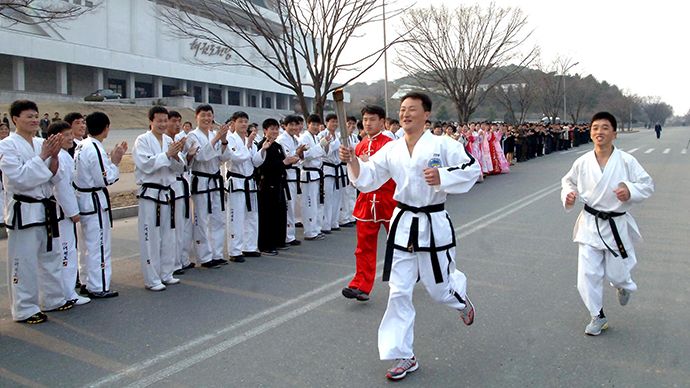
The embassy warning on Friday coincided with reports that North Korea had loaded two intermediate-range missiles on mobile launchers and hidden them in underground facilities near its east coast. North Korea has repeatedly issued threats it aims to hit South Korea and the US.
Geopolitical analyst at 21stCentury Wire.com, Patrick
Henningsen, admits that “there is a very real danger for the
embassies” in the DPRK, as well as danger for South Korea and
other nearby countries.
“But the big question is how this hyped up at the beginning, had
it to do with nuclear threat from North Korea,” he noted to RT.
“I can’t help but remember that in the run-up to the Iraq war
everyone was asking whether Saddam Hussein would use chemical
weapons or not, but no one actually asked the question if he really
had them in the first place,” the expert observed.
In his view, “there is no nuclear threat or inter-ballistic
missile threat to the US” from North Korea and the whole
situation is “very much overhyped in a Cold War theatrical
sense.”
At the same time, Henningsen observed, “the pivot towards Asia
from United States is very real.” Since the beginning of the
Korean crisis, the Philippines have already approved the use of
more bases for the US. Besides that, “there was a deal to
decommission some of the Okinawa sites in Japan,” and now,
thanks to the conflict it “might be off the table.”
“The military-industrial complex needs reason to exist,” the
analyst pointed out. “And I believe the North Korean threat – be it theatrical or real –
gives us that reason, gives a pre-text for the expansion of the
military economy from the US side,” he concluded.
Tensions in the region have flared up since February, when North
Korea conducted its third nuclear test. The launch was condemned by
the UN and much of the international community, prompting the UN to
approve a new round of sanctions in early March.
Pyongyang reacted to sanctions by threatening to launch a nuclear
strike on the US.
Last week, Pyongyang declared it had entered a state of war with
its southern neighbor following an earlier decision to withdrawal
from the 60-year armistice that ended the Korean War.
North Korea had previously threatened to pull out of the 1953
armistice if the South did not halt a joint annual military
exercise with the US.
On Friday, South Korean media reported that its northern neighbor
had positioned two medium-ranged Musudan missiles on mobile
launchers along the country’s east coast.
South Korea responded by deploying two battleships capable of
intercepting and destroying ballistic missiles.
The US for its part has bolstered its missile defense system in the
region by deploying interceptor missiles and warships.







